(Warning: Spoilers for the latter half of Alice and lots and lots of death ahead.)
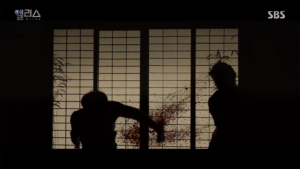
The latter half of Alice is a dizzying race to save almost everyone, but with a new antagonist around every corner. The unclear physics of time travel introduced in the first eight episodes are extended and (somewhat) clarified while keeping the audience guessing until the last episode. In fact, the viewers do not really discover the identity of the ultimate antagonist until the last couple of episodes and even then, the background of the character is murky at best. One identity that does however become clearer is Sun Young is in fact Tae Yi, becoming the key to the whole story.
This middle stretch of the show begins as a vague cat and mouse chase that finds Jin Gyeom and Tae Yi mysteriously time traveling alone and becoming more confused about each other’s origins and identities. It feels a little slow after the bustle that was the end of the first half and while one could appreciate the deep breath, it does feel like the story loses some steam.
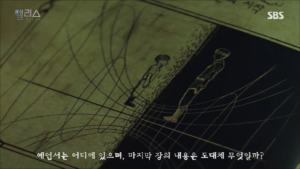
It is not without peril and plot twists, but overall, the middle episodes create slow, rising tension that obscures the line between protagonist, antagonist, and anti-hero. Many of the characters are shown to be incredibly fallible, victims to their own desires and the allures that time travel can promise. What does give the plot some forward momentum is the slow uncovering of characters from the future and how they ultimately impact present Jin Gyeom and Tae Yi’s lives in the present. It is not until much later that we discover that Go Hyeon Seok (the detective who treated Jin Gyeom like a son) is a time traveler himself who returned to be with his wife again. Likewise, the professor Seok O Won, who works at the Kuiper Institute where future and present Tae Yi is/was a scientist, is a future iteration of himself that kidnapped himself in the past to further the dark deeds of Kim Cheol Am and an even older and deadly (all powerful?) Jin Gyeom.
Contrary to the first half of the show, the two protagonists’ relationship becomes thankfully less sensual and more platonic and protective as it slowly becomes clear that Tae Yi and Sun Young (Jin Gyeom’s mother) are one in the same (kind of).
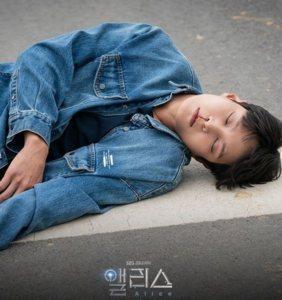
One point that the show writers do hammer home is the sentiment that individuals are crafted by their lived experiences rather than their genes, so Tae Yi, professor and young adult of the present, and Tae Yi, mother of Jin Gyeom and time traveler from the future, can be fundamentally the same person while subjectively different because of their lived experiences or lack thereof. This does however become a bit problematic when professor Tae Yi returns to 2010 and meets time traveler Tae Yi and she begins experiences intense déjà vu-like symptoms are she remembers time traveler Tae Yi’s memories. These moments end up being pivotal to uncovering the end of the Book of Prophecy and discovering Jin Gyeom’s role in the future existence of time travel. It does still feel a bit uncomfortable in light of their short-lived romance, but the sensuality does quell to a much more manageable intense friendship.
As the plot progresses, the writers do make use of standard time travel tropes like multiple timelines, alternate realities, and the erasure of individuals as they disappear from their respective timelines, but it does not seem to remain consistent throughout. It seems to stick to standard sci-fi construction in theory, but the death of some past versions of characters (like the enigmatic Seok O Won who does not seem to stay dead) do not seem to affect the existence of their future self in some cases. It does make for an exciting story, but at times it feels overly confusing.
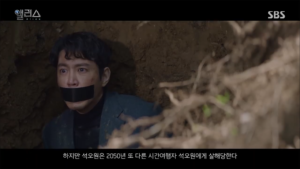
One other recurring theme that does persist through the show is seemingly never-ending deaths of side characters and main characters alike. As a viewer you are carried along by the vague idea of a possible reset when Jin Gyeom declares he will “save everyone” no matter what it takes, but it is exhausting to see characters suddenly murdered in cold blood, primarily by corrupted Alice agents. In this time Jin Gyeom watches his mother die not once, not twice, but three and four times depending on which Tae Yi you are referring to.
The Alice director himself is foreshadowed as a primary purveyor of this chaos and tragedy that led to time traveler Tae Yi’s death and the eradication of civilians keen to the existence of time travel. However, this realization is short-lived and he is quickly killed by a very angry papa-bear Min-Hyuk. While satisfying to see Ki Cheol Am get his eventual comeuppance, it seems that his significance all the conspiracy is a little overexaggerated.
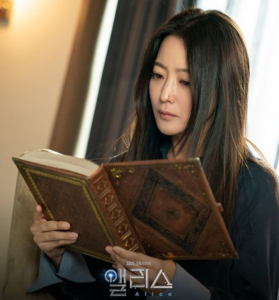
He certainly corrupted Alice and subverted it to his own wishes, but he was ultimately a slave to his own fear of the future and the sway of more powerful beings. The last couple of episodes find Tae Yi and Jin Gyeom uncovering more of the elusive prophecy and Tae Yi’s past as a young child. The end of the series is fast-paced, vastly confusing, and has almost so many duplicates it is hard to keep track of them all. While viewers can come to appreciate the crisscrossing timelines, elusive identities of the actual killer, and the intricacy of the story, the he-said she-said starts become a little tired.
What I personally did not expect in the latter episodes, was for the prophecy to quickly devolve into a Revelations-esque, end of the world, destroyer of all things angle. Jin Gyeom is foreshadowed not only as his mother’s own killer but as an ultimate destroyer of all, in every reality and timeline. The concept of creation plays a big role here and the clear definition of what the creation is exactly remains unclear. If more of the Book of Prophecy were revealed sooner and this angle was worked in more gradually, it likely would have given the overall plot more cohesion and flow. It feels thrust in as an addition gloom and doom, the world is ending, travesty rather than a true plot device.
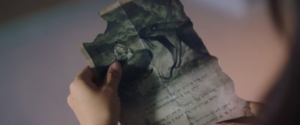
The timelines are ultimately reconciled by Jin Gyeom of the present killing a much older future self that is attempting to prevent himself from ever being born. Why the killing of another future self dismantles everything rather than creating ripples in his reality is unclear, but it does wrap up some lingering plotlines and saves those he holds dear. It does make sense in a roundabout way, but it feels unfulfilling. With all of the death of past and future selves, the unknown of characters’ true identities, and the absolute mess of a storyline with Tae Yi, it seems too simple for Jin Gyeom to just kill himself and everything resets with a happy ending.
Riddled with death, despair, unfilled and confusing prophecies, the plot by the end is equal parts exciting and exhausting. Luckily the characters ultimately reckon with their pasts and their identities lean more heavily on their lived experiences rather than their DNA, but it still feels a little strange to say the least. The story overall is engaging, fresh, and does leave you guessing until the end. I just wish the end had more foundational teeth rather than a simple cure all that involved the death of a newly introduced character in the last few episodes.
(Images via SBS)


